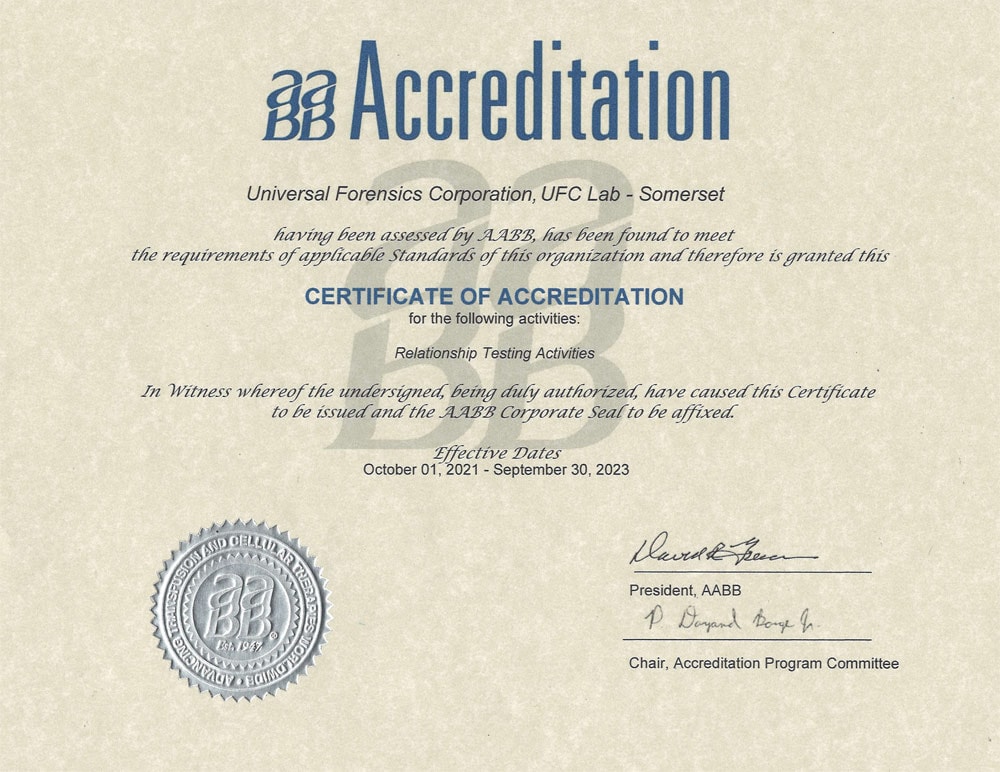Understanding Maternity Testing: A Comprehensive Guide

What if everything you understand about you and your family was suddenly in question? It isn’t as far-fetched as it sounds, and sometimes people find themselves in this situation. Perhaps it’s learning about an adoption, a question about a surrogate, or something rare like a hospital mix-up. It’s the time when you’ll want to seek answers – and definite ones.
That’s where DNA testing can become invaluable. You can take a simple test to confirm a mother’s and child’s biological relationship. Here is what you need to know about maternity testing.
What Is Maternity Testing?
Maternity testing is a DNA test that can help you confirm the biological mother of a child. This DNA test compares the child’s DNA with the mother and looks for genetic matches between the two.
It has a high accuracy rate of 99.99% for matches and 0% for no matches. It’s based on sound, well-established science, as babies inherit half their DNA from their mother and half from their father. In other words, it’s reliable enough to confirm genetic connections between mother and baby.
A maternity test offers proof of biological relationships where there is a degree of uncertainty, like a hospital mix-up, adoption, or surrogacy.
How Maternity Tests Work
The maternity test compares two different DNA samples: the genetic material of a child and that of the potential mother. This comparison looks for similarities as a biological child will share some of the same DNA profile as their mother. The DNA test is examined by trained teams of scientists in a lab who conduct advanced genetic analysis techniques.
This process will look at specific genetic markers between the two samples. When the two profiles are compared side by side, a lack of match is enough to rule out maternity. Likewise, matches between both samples are enough to confirm a maternal link.
Collecting DNA for Maternity Testing
In order to compare samples, it’s necessary to collect DNA from the mother and the child. Fortunately, this is painless and straightforward and requires a simple buccal cheek swap. This swab collects enough cells to examine the DNA.
From a legal standpoint, these samples must be collected from an authorized professional if the testing is being done for any legal reason. It must involve a secure chain of custody. After the DNA is collected, it’s sent to an official lab for testing.
It is also possible to collect prenatal samples by extracting amniotic fluid, though this is more invasive.
Reasons for Maternity DNA Testing
While maternity tests may not be as common as paternity tests, there are several valid reasons why someone might choose to undertake one. Here are the most likely reasons for seeking a maternity test:
A Hospital Mix-Up
Hospital mix-ups are, thankfully, rare, but there have been cases where babies have been swapped at birth. Any doubts can create anxiety for parents, and the best way to establish a concrete answer is via a maternity test. It offers conclusive proof, but more importantly, peace of mind for the parents.
Surrogacy Checks
Sometimes, surrogate arrangements may require maternity testing to verify the link between the biological mother and the baby. This is often the case when the mother wants to ensure the correct egg is fertilized and implanted in the surrogate woman.
Adoption
Maternity tests may be sought when individuals want to reunite after an adoption process. This could be the biological mother seeking to confirm a link to her child or a child searching for confirmation of their biological mother. This can be valuable when documentation from the adoption process is missing, such as in decades-old cases.
Immigration and Citizenship Procedures
Some immigration laws may require proof of maternal relationships. That could be the case when a mother or child is applying for a visa, residency, or citizenship. In these cases, the test will be used as part of a legal evidence process to support the immigration application.
Custody Disputes
There may be legal reasons for a maternity test if there is a dispute over who is the true biological mother of a child. This could be relevant in custody claims, child support, or, in some cases, inheritance disputes. The confirmation of biological links can be supporting evidence in these types of cases.
Medical Information
Sometimes, a genetic link is helpful in examining the hereditary conditions between a mother and child. A maternity test can confirm the biological connection before any further testing is carried out. This can be useful if a family needs a medical history for a custom healthcare plan.
Are Maternity Tests Reliable?
DNA maternity testing analyzes STRs (short tandem repeats) between the child and the mother. This is a highly accurate and reliable technique and is why maternity testing can be used in a variety of circumstances – including a court of law.
There are two types of maternity testing available:
- Postnatal
- Prenatal
In both cases, the results are accurate, provided they are tested in a proper laboratory with the correct procedures for handling and labeling samples. The only difference between the two is that prenatal testing may involve taking amniotic fluid, which is a more invasive option.
Maternity Testing: What to Expect
Your experience during a maternity test will differ depending on whether you are taking it for legal or personal reasons. Legal DNA tests will need extra security checks like identity verification and an approved professional.
If you are taking a maternity test for personal reasons, you can use a private, at-home service. This will give you results that are equally reliable but can be done in the comfort and privacy of your home. Results from tests take between a few days to a few weeks, depending on the provider.
Maternity Testing: Trusted, Valuable Answers When You Need Them
Maternity testing using DNA can be a valuable resource in the right circumstances. If you have questions about biological relationships, it’s worth considering whether a definite answer could help ease worries and doubts or even support a legal case.
Take that first step now by reviewing our DNA testing services at ReliaLabTest. With expert teams and secure laboratories, we can give you accurate and reliable results.








